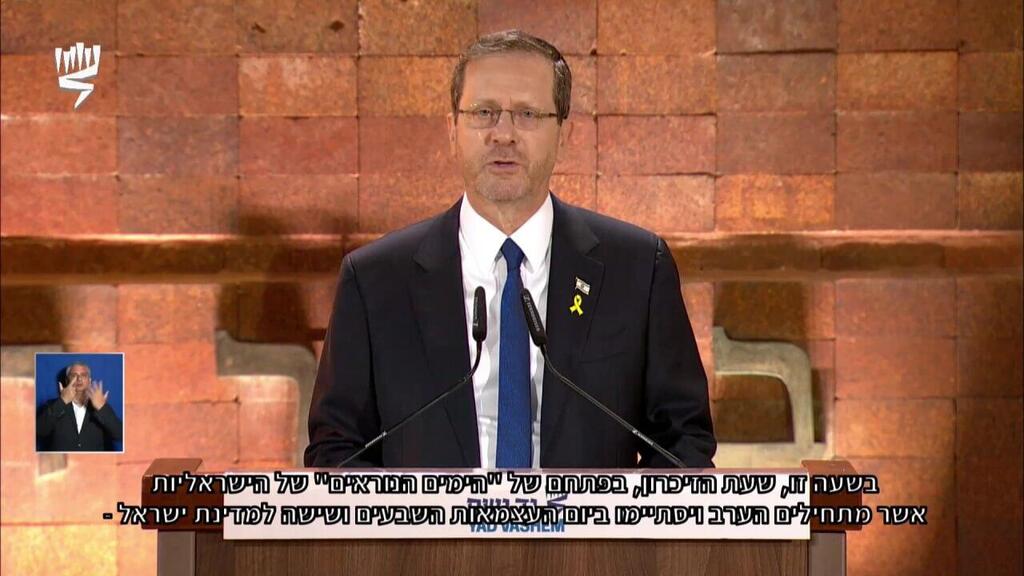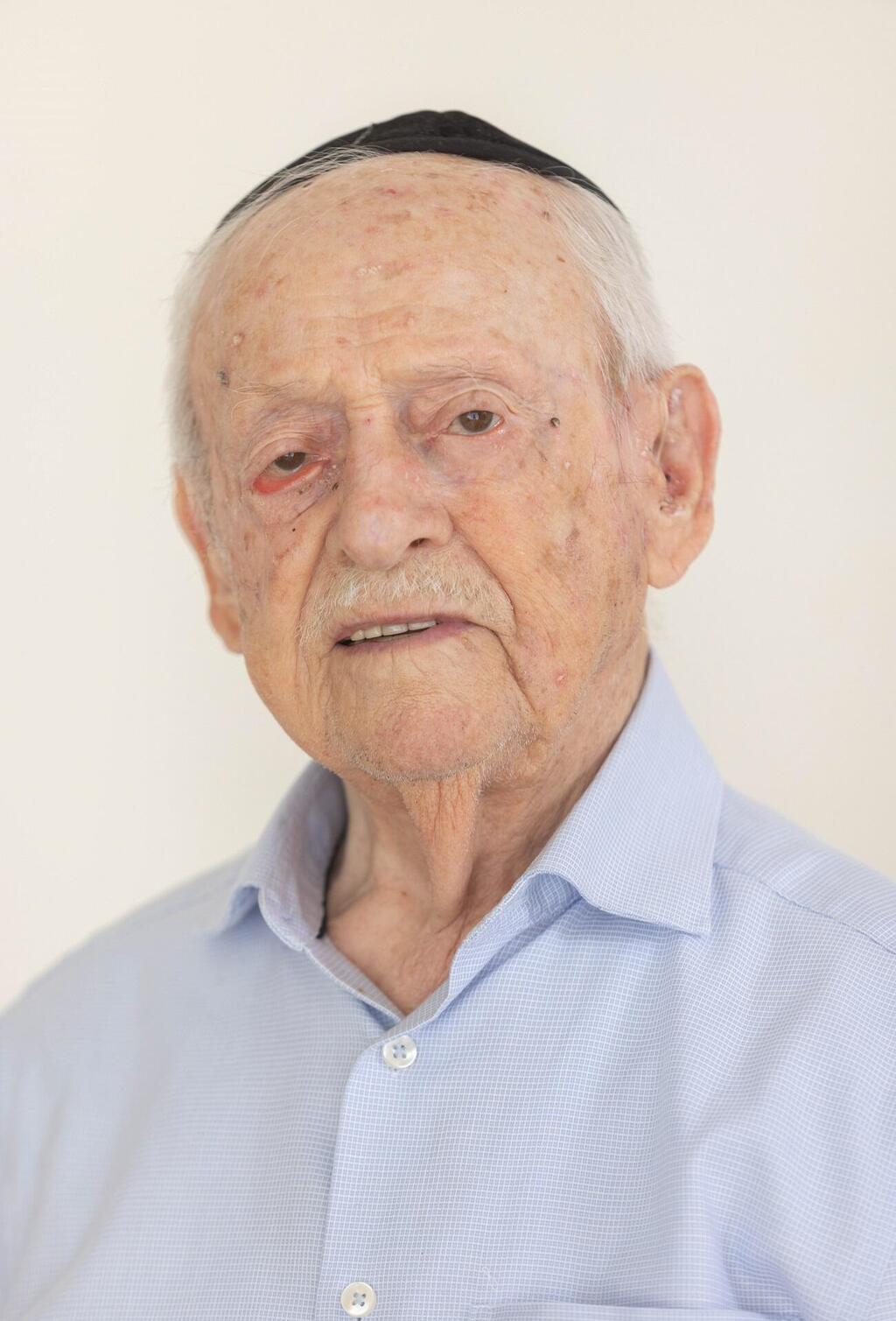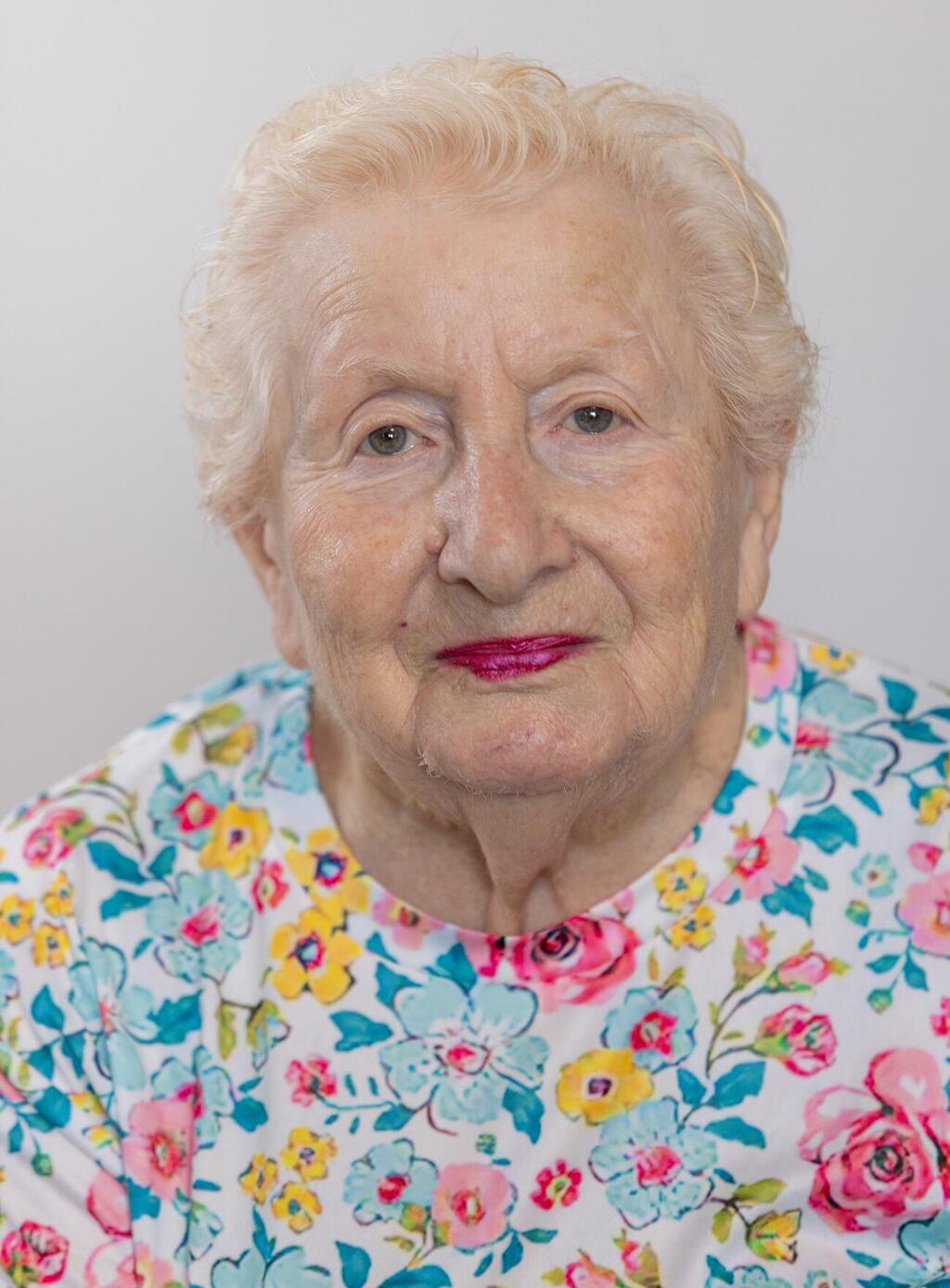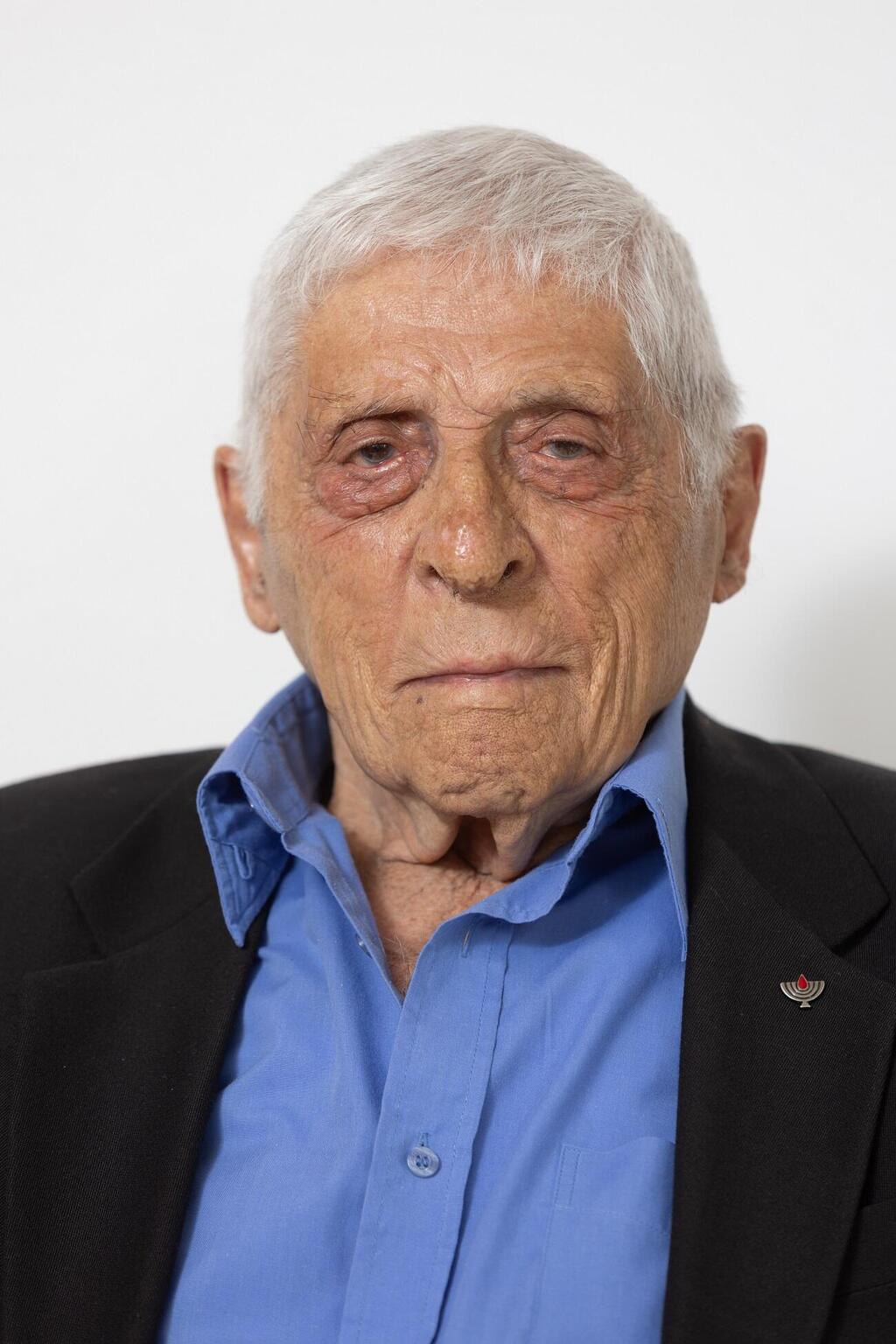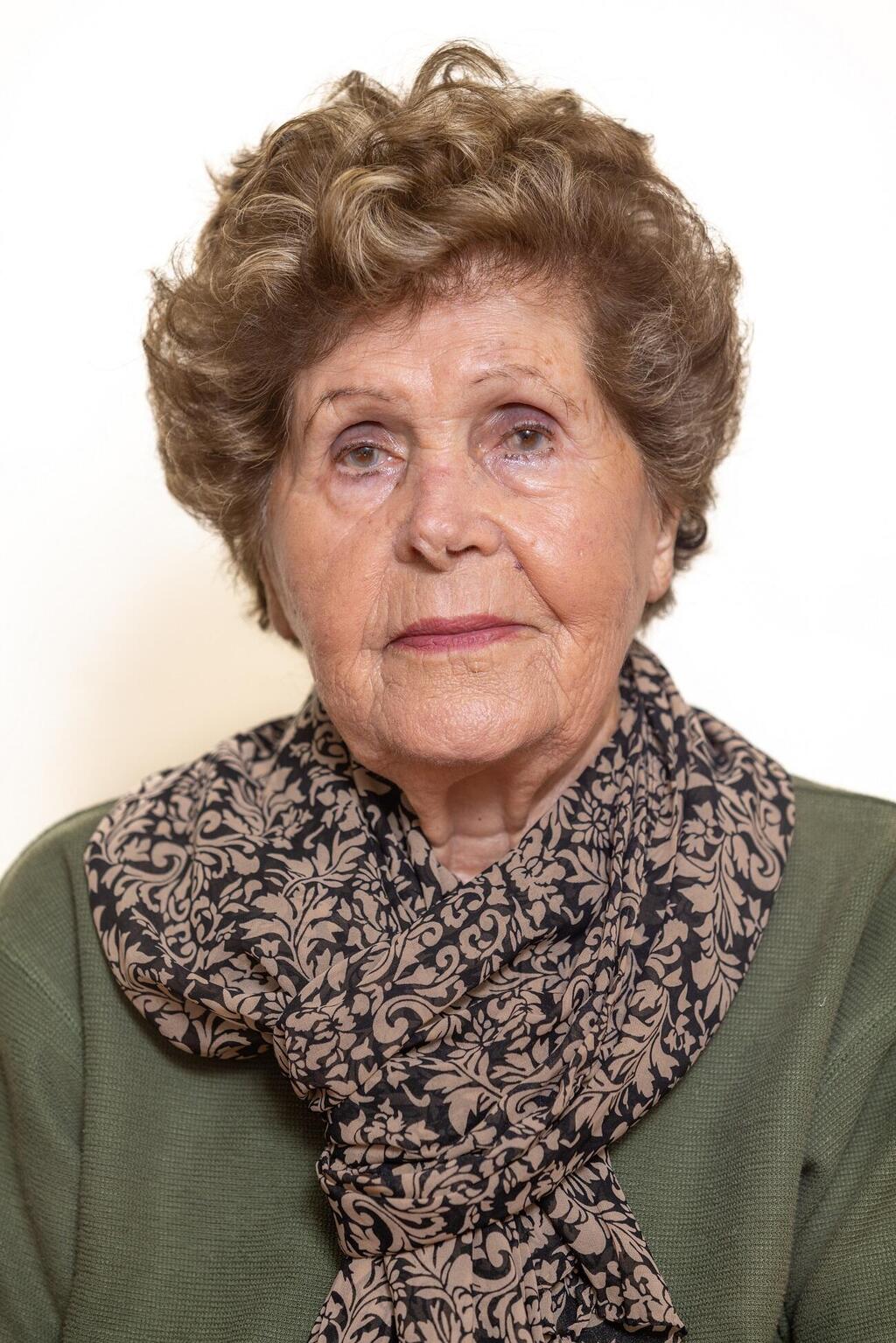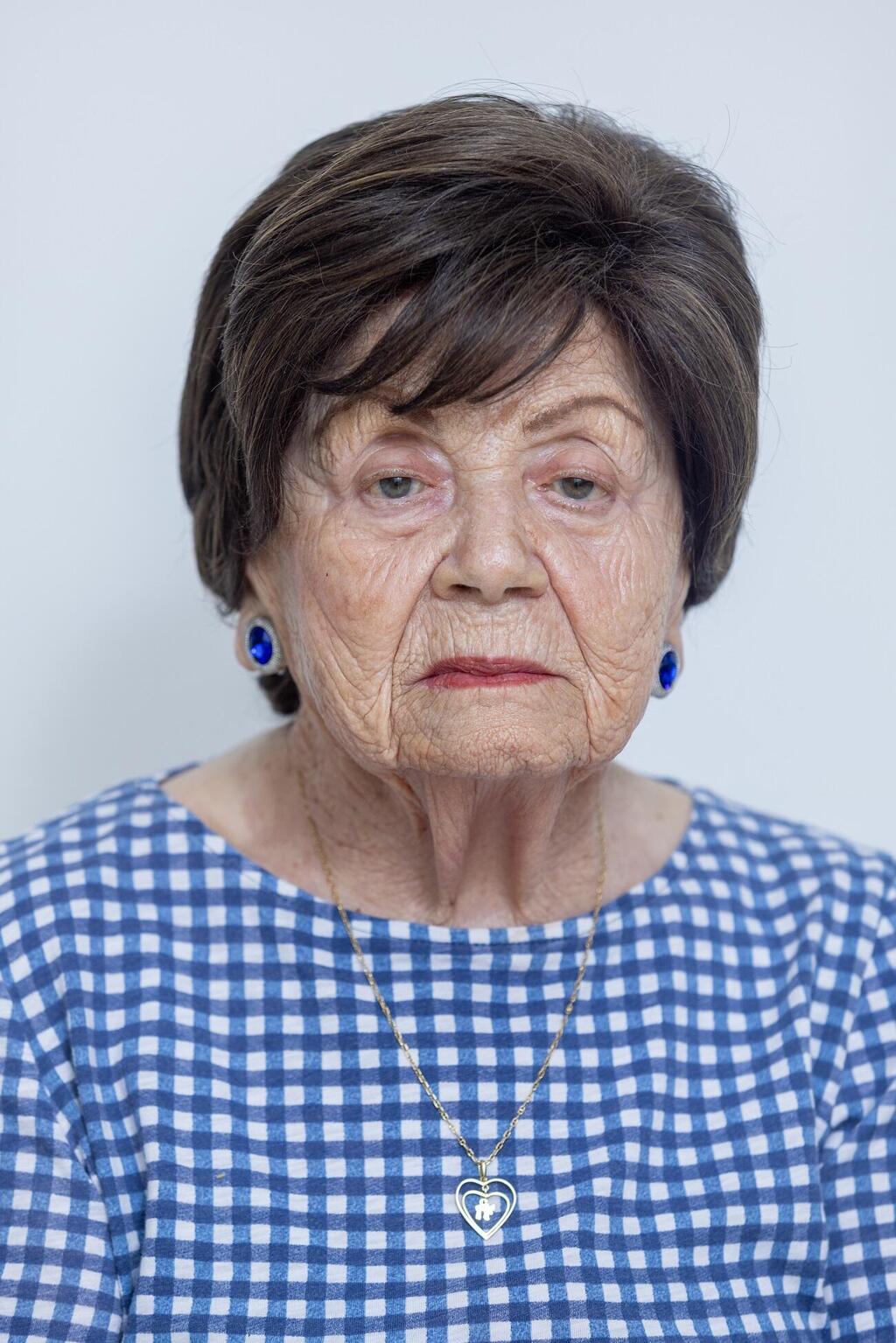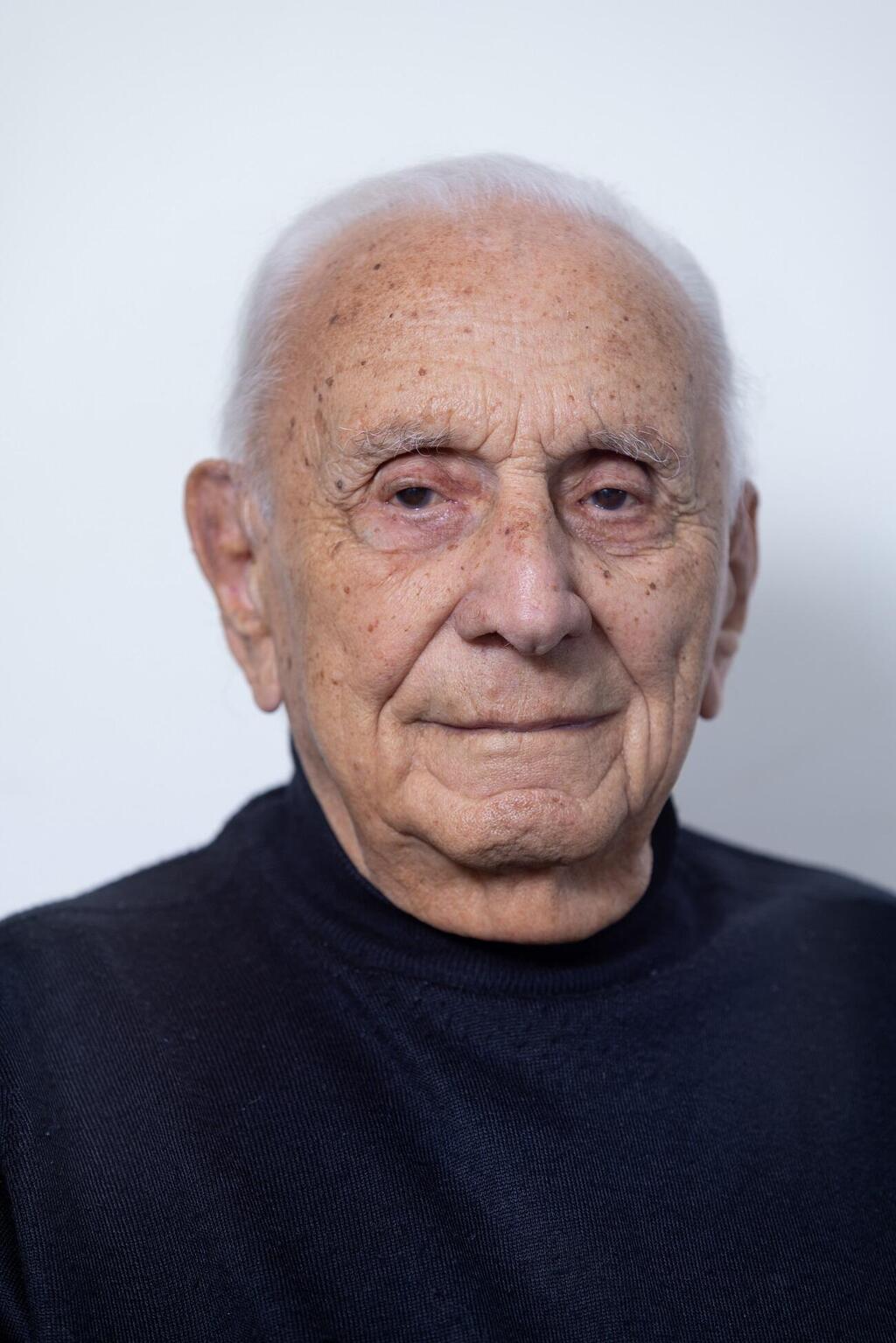Getting your Trinity Audio player ready...
In an unusual act, Prime Minister Benjamin Netanyahu added several sentences in English to his address Sunday night at the official opening state ceremony for Holocaust Martyrs' and Heroes' Remembrance Day at Yad Vashem.
"Eighty years ago, in the Holocaust, the Jewish people were totally defenseless against those who sought our destruction. No nation came to our aid. Today, we again confront enemies bent on our destruction," he said, addressing international opposition to a military operation in Rafah, the threat of arrest warrants issued by the International Criminal Court in The Hague, and criticism of the conduct of the fighting in Gaza.
11 View gallery
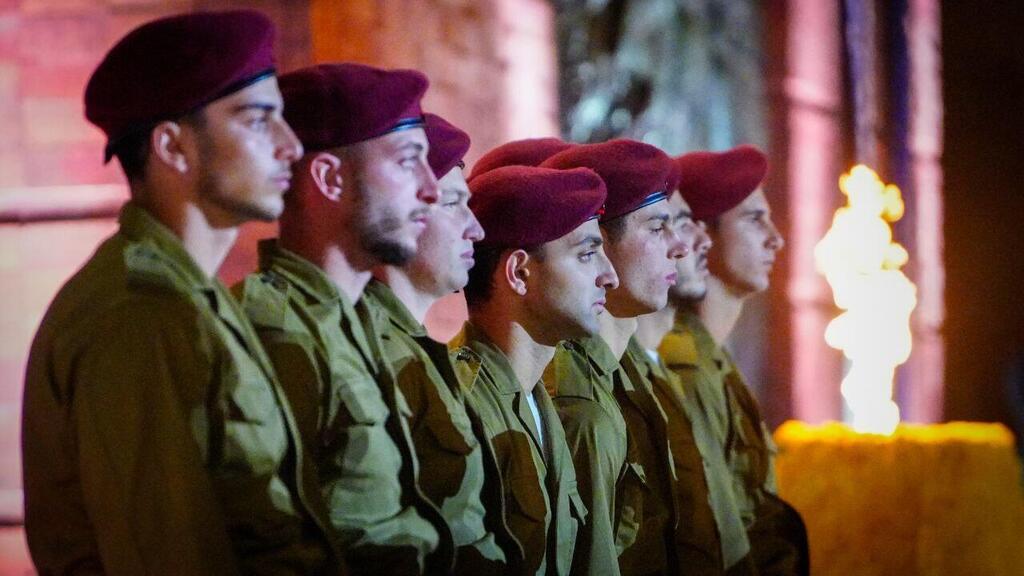

Honor guard at state ceremony marking holocaust Remembrance Day at Yad Vashem
(Photo: Shilo Shalom)
"I say to the leaders of the world, no amount of pressure, no decision by any international forum, will stop Israel from defending itself. As the Prime Minister of Israel – the one and only Jewish state – I pledge here today from Jerusalem on this Holocaust Remembrance Day: If Israel is forced to stand alone, Israel will stand alone. But we know we are not alone because countless decent people around the world support our just cause. And I say to you, we will defeat our genocidal enemies. Never again is now," he concluded.
Netanyahu delivered his address facing an empty seat in the front row of the audience, dedicated to the hostages still being held in Gaza.
11 View gallery
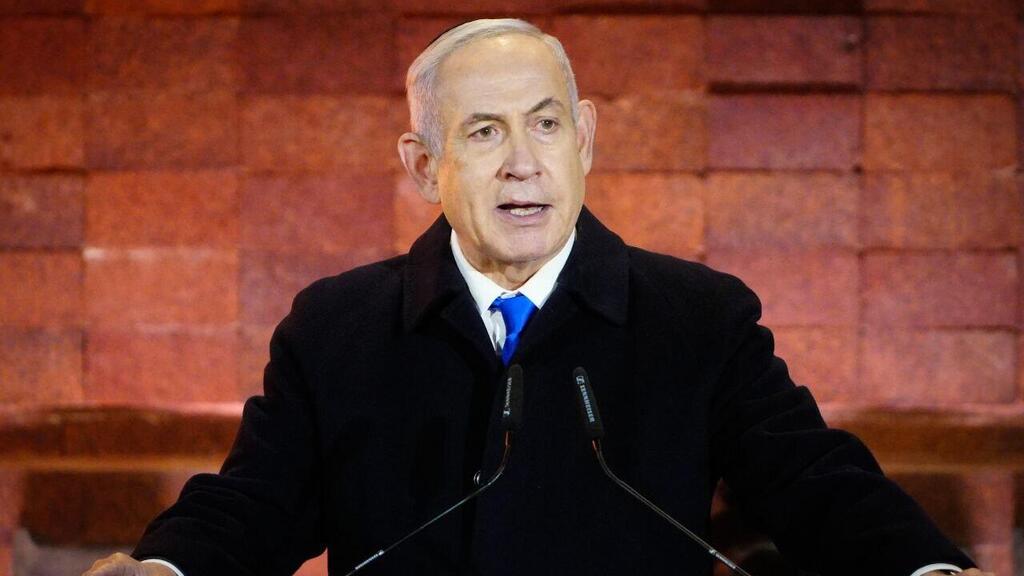

Prime Minister Benjamin Netanyahu addresses the state ceremony for Holocaust Remembrance Day at Yad Vashem
(Photo: Shilo Shalom)
"I say this clearly: the horrific terrorist attack of October 7th was not a Holocaust. Not because they lacked the intent of genocide, but because they lack the ability to carry it out. The intention is the same; the Nazis acted in order to completely destroy the Jewish people. The Hamas murderers are instructed to do the exact same thing. They murder babies, children, women, men, the young and the elderly. They do so without batting an eye. They kidnapped our brothers and sisters, and half of them are still held hostage, underground, in the dark," he said.
11 View gallery
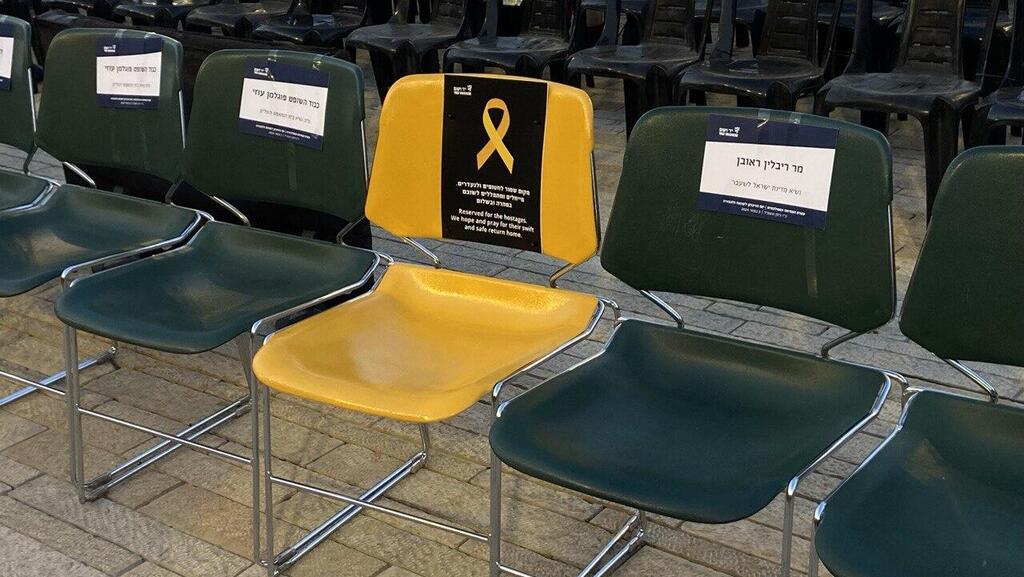

empty chair in the front row at Yad Vashem ceremony, dedicated to the hostages still being held in Gaza
(Photo: Gil Yohanan)
The prime minister also addressed the campus protests over the war in Gaza and violence against Jews.
"Jewish students, supporters of Israel, are facing threats, slander and harassment. They are scared to be seen with any Jewish symbols: their yarmulkes, prayer shawls, Stars of David. Jewish professors and academics are beaten up and humiliated. Brainwashed bullies break into classrooms and break the windows," Netanyahu said. "This is reminiscent of things that happened in German universities in the 1930s. Yes, they broke windows too. Only this time, it is happening in America in 2024."
"Our brothers and sisters in the Diaspora, we stand with you against the hatred here, and against the hatred there," he also said.
"This is not a regular Memorial Day. This year, the State of Israel is at war. We are at war," President Isaac Herzog said at the beginning of his address.
"Throughout the decades that have passed since the Holocaust, we assured time after time: 'Never again,' and we swore that the Jewish people would never again stand defenseless and unprotected. And yet, despite all that, the horrors of the Holocaust shook us all during the October massacres, echoing in all our hearts," he said. "To me as well, the descriptions of mothers silencing babies so they wouldn't cry and give away their hiding place; of children torn from their parents; and of abominable murderers – who saw in the Nazis a model to emulate, and who, burnt, and butchered entire families – echoed the horrors among us."
But, he added, "October 7th was not a Holocaust because today we have the State of Israel and the Israel Defense Forces. Although the results of the tragedy and the shock still haunt us; we don't forget that what our brothers and sisters who perished in the Holocaust could only dream of, only imagine: a country and an army of our own. An army that even now fights in a battle that has not yet ended – for our national home. The home of national independence."
A siren will sound for two minutes on Monday morning at 11 a.m. to honor the victims of the Holocaust. Following the siren, the annual Holocaust Martyrs' and Heroes' Remembrance Day Wreath Laying Ceremony will take place at Yad Vashem.
11 View gallery
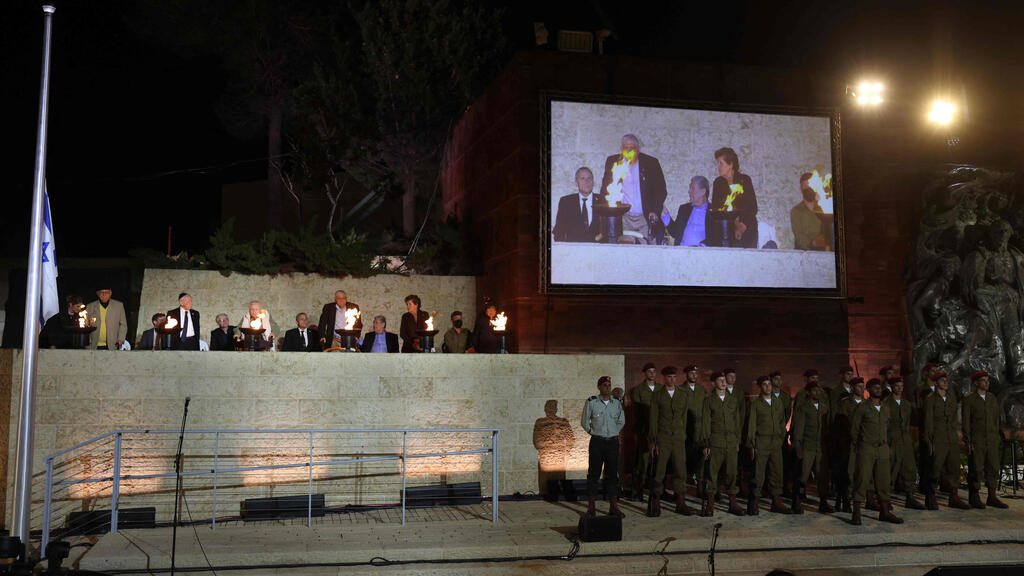

Holocaust survivors light torches at the Holocaust Remembrance Day state ceremony at Yad Vashem
(Photo: REUTERS/Ronen Zvulun)
Each year, during the official Holocaust Martyrs' and Heroes' Remembrance Day ceremony, Holocaust survivors light six torches, representing the six million Jews killed in the Shoah. The personal stories of the torchlighters are told in short films screened during the ceremony.
These are their stories:
Michael Bar-On
Michael Bar-On was born Michael Brownfeld in 1932 in Kraków, Poland, Michael was the youngest of his Hasidic family’s eight children. His father Haim was a merchant who led the prayers in the court of the Admor (spiritual leader) of Sanz, and his mother Nechama was a housewife. After the occupation of Kraków by the Germans in September 1939, the occupiers abused Haim and tore off his beard and sidelocks. In 1941, the family was incarcerated in the Kraków ghetto before they were transferred to Międzyrzec Podlaski, where they lived in a stable due to lack of funds.
When a typhus epidemic broke out there due to the overcrowding, contamination, and hunger, almost all of the Brownfelds contracted the disease. Haim succumbed to typhus, followed two weeks later by Nechama, who died in the synagogue where the patients were being housed. Posing as a Christian, Michael’s cousin Bronka came to Międzyrzec Podlaski and smuggled Michael and his siblings to her hometown of Brzesko.
When rumors of the area’s impending liquidation by the Germans started to circulate, Michael fled to the Bochnia ghetto and then to Kraków upon hearing about an upcoming Aktion. However, unable to enter the Kraków ghetto, he returned to the ghetto in Bochnia. From there, he fled southward to the town of Piwniczna together with his brother Elimeleh and their sister Aliza. They embarked on a grueling journey of almost 200 kilometers on foot, eventually reaching the city of Košice in Hungary (today Slovakia). A few months later, the three siblings arrived in Budapest. In April 1944, Michael, Elimeleh and Aliza escaped to Nagyvárad where they were confined in the local ghetto. Managing to smuggle themselves out of the ghetto, they reached their aunt Dvora, who lived in the city. From there, they fled to Romania but were caught and thrown into prison. Thanks to a bribe paid by a local Jew, the jailers released Michael and his siblings, and they went to Arad and then to Bucharest.
The three youngsters succeeded in boarding a boat that had anchored in the Port of Constanța in Romania and sailed to Istanbul in the hold. There, they boarded a train and reached Mandatory Palestine via Syria and Lebanon in July 1944. They were arrested by the British and imprisoned in the Atlit detention camp. Michael studied in the Agudat Yisrael educational institution in Magdiel, became a counsellor for young Holocaust survivors, and enlisted in the Israel Defense Forces. He held various command positions in the Israeli army and served as head of burial matters during the Yom Kippur War.
After twenty-five years in the IDF, he retired with the rank of lieutenant-colonel. During his military service, he was requested to Hebraize his family name and became Michael Bar-On. After his retirement from the IDF, Michael was appointed deputy director of Administration and Personnel at Bar-Ilan University. Michael and his wife Haya have three children, and many grandchildren and great-grandchildren.
Raisa (Rachel) Brodsky
Raisa (Rachel) Brodsky was born in 1937 in Sharhorod, Ukraine, to the Zubkovs, a traditional family of five. They spoke Yiddish at home and observed the Jewish holidays. The town’s residents would mark special events in the restaurant where Raisa’s father Zamvel worked and in which the Jewish community would gather. When Nazi Germany invaded the USSR in June 1941, the restaurant was ransacked. The manager threatened to kill Zamvel if he didn’t cover the losses. Both the Jews and the Ukrainians in the town were fond of the family and worked together to help him.
Zamvel and his wife Molka were conscripted to forced labor. In early September 1941 the Germans passed control of Sharhorod to the Romanians, who established a ghetto in the town. Zamvel organized underground meetings in his house, and together with his Jewish and Ukrainian resistance comrades, they smuggled food, clothes, equipment, and medicine to the partisans. The leaders of the underground – the Jewish Malinsky and the Ukrainian Grechaniy – were caught, tortured at the Romanian headquarters, and executed.
Jewish deportees from Bessarabia and Bukovina in northeastern Romania were also incarcerated in the Sharhorod ghetto. A refugee family came to live with the Zubkovs, exacerbating their already cramped living conditions.
After the Red Army liberated Sharhorod in March 1944, Raisa studied mathematics and drafting, and she taught mathematics at the school run by the brother of Grechaniy, the Ukrainian partisan who had worked with her father during the Holocaust. After the USSR permitted immigration to Israel in 1989, Raisa and her family realized Zamvel’s dream and made aliya. Raisa did not know any Hebrew, but she studied at an and within a year, she had passed the mathematics teacher training course and started working at an elementary school. Raisa and Semion have two children, five grandchildren, and two great-grandchildren.
Arie Eitani
Arie Eitani was born Armin Guttman in Milan, Italy in 1927, the only child of Hungarian immigrants Samuel and Etel. Arie recalls feeling very much a part of Italian society. On the eve of World War II, Jews with foreign citizenship were forced to leave Italy. The family returned to Hungary and settled in the city of Eger. Arie first attended a Jewish school and when he was older he attended a state school.
In 1942, Samuel was conscripted to the Hungarian Jewish Labor Service. In May 1944, Arie together with his mother Etel, his grandfather, and the rest of his family were incarcerated in the Eger ghetto. Approximately one month later, they were deported to Auschwitz, and the entire family except for Arie was murdered in the gas chambers. Arie was imprisoned in the Gypsy camp at Auschwitz and then transferred to the Kaufering camp, where he was a forced laborer.
When Kaufering was evacuated, the inmates were sent on a death march. Arie reached the Allach camp, where he contracted typhus. When U.S. Army soldiers liberated the camp, Arie was too weak to stand up. He returned to Eger and boarded the Ma’apilim vessel "Knesset Israel" in November 1946. However, the British intercepted the boat and imprisoned its passengers in Cyprus. Arie ran away but was caught, put on trial, and sent to jail. He reached Mandatory Palestine in 1947 and enlisted in the Haganah and fought in the War of Independence, including in Mishmar Hayarden, which was attacked by the Syrians in June 1948. Arie was badly injured and was taken hostage. He was tortured, and some of his toes were amputated. He returned to Israel thirteen months later.
Arie is one of the founders of Kibbutz Ha'on in northern Israel. There, he met and married Rina, a Holocaust survivor from Poland. They have two children, eight grandchildren, and seven great-grandchildren. Rina died in 2020. Their first-born daughter Esther died in 2023.
Allegra Gutta
Allegra Gutta (née Naim) was born in 1928 in Benghazi, Libya. Her father Vittorio Naim was a merchant who owned a store in the city market. Allegra was the fifth child in the family and had nine brothers and sisters. In April 1941, with the British retreat from Benghazi and before the arrival of the Italian armed forces, several Benghazi residents rioted against the Jews, looting Jewish homes and stores. In early 1942, the Italians deported most of Benghazi’s 3,000 Jews to the Giado concentration camp, over 1,000 kilometers west of Benghazi in the Libyan Desert. Allegra was deported with her parents and most of her siblings, except for her two older brothers who enlisted in the British army, and served in Italy and Mandatory Palestine. The deportees were transported in trucks over several days, in the blazing heat and without receiving any food or water. Several died en route. Allegra’s father and two of her sisters were among the hundreds of Jews who succumbed to typhus at Giado.
The British liberated Giado in 1943, and Allegra and her family returned to Benghazi. Allegra’s two brothers were discharged from the British army and came back to Benghazi, where they repaired their destroyed home. Allegra helped to support her family by working at the British army canteen, where she learned English. In September 1948, the Naims escaped to Tripoli and reached Naples, Italy, with the help of the Jewish Agency. From there, they took a train to Milan. In November 1948, the family sailed from Bari, Italy, to Israel on the Teti. They began life in Israel at the immigrant center in Binyamina before moving to Old Jaffa, and they finally settled in Holon a year later. In April 1952, Allegra married Aaron Gino Gutta z”l, and they made their home in Tel Aviv. Allegra and Aaron Gino z”l have two children, three grandchildren, and six great-grandchildren.
Pnina Hefer
Pnina Hefer was born in the village of Nuşfalǎu in Romania and had 20 brothers and sisters. Her father Anshel Asher Weiss was the community rabbi, and the family lived next to the synagogue. In 1940, Hungary gained control of the area, and when the Germans entered Hungary in March 1944, the Jews were subjected to abuse and restrictive decrees.
In May 1944, the village Jews, including the Weiss family, were rounded up and sent to the Szilágysomlyó ghetto. They were herded into an open field, where they were forced to make tents out of their clothes. Jews were beaten and tied to trees. Beards and sidelocks were forcibly shaved, and the men were ordered to make sandals out of the straps of their tefillin (phylacteries). Some three weeks later, Pnina and her family were deported to Auschwitz. On the train, her father told the children that if they were separated, they should make every effort to reach Mandatory Palestine. Most of the Weiss family were murdered in the gas chambers; Pnina was left with one sister, Bluma.
Pnina and Bluma were in Auschwitz for five and a half months and experienced multiple selections. They bartered their bread rations for a prayer book that they hid, and they would pray with the other prisoners in their block. In late 1944, Pnina and Bluma were transferred to Bergen-Belsen, where they fasted on Yom Kippur. They were sent to perform forced labor at an ammunition factory in Salzwedel and were liberated by US soldiers on April 14, 1945.
The sisters traveled to Yugoslavia and boarded the vessel Knesset Israel in November 1946. The British captured the boat and threw the girls’ precious prayer book into the sea. A photograph of the two girls arguing with the British was published in a newspaper, and Pnina and Bluma were recognized by two of their brothers, who had survived and had already immigrated. Pnina and Bluma were sent to Cyprus and eventually reached the Atlit detention camp in September 1947. Pnina moved to Jerusalem and studied at a teachers’ seminary and was reunited with Bluma and four other siblings who had survived.
Pnina married Jacob, and they traveled to Tunisia as educational emissaries on behalf of the State of Israel. Later, they both taught at a Jewish school in Argentina, and when they returned to Israel, Pnina became the principal of the Masuot school in Bnei Brak.The have three daughters, sixteen grandchildren, and more than forty-five great-grandchildren.
Izi (Itzhak) Kabilio
Izi (Itzhak) Kabilio was born in 1928 in Sarajevo, Yugoslavia (today Bosnia and Herzegovina), the only child of Leon and Netta (née Birenberg). He attended the local Jewish school and the state gymnasium, was a member of the Hashomer Hatzair youth movement, and sang in the children’s choir at the city’s Great Synagogue. Leon owned a silk and wool factory that employed 250 workers and was one of the founders of the Jewish “Geula” bank. In January 1941, Izi was scheduled to leave for Mandatory Palestine through the Youth Aliyah but was pressured by his grandfather and mother to cancel his plans.
The Germans occupied Yugoslavia in April 1941. They nationalized Leon’s factory, and Izi witnessed the destruction of the Great Synagogue by an unruly mob. One of Leon’s factory employees, a German mechanic by the name of Josip Eberhardt, was on friendly terms with him. After the German occupation, Eberhardt was recruited by the Gestapo but maintained his friendship with Leon. In September 1941, the ultranationalist Croat organization Ustaša that ruled the Independent State of Croatia at the behest of the Germans deported Izi’s grandparents to the Jasenovac camp, where they were murdered. Eberhardt came to the Kabilio home and escorted Leon, Netta, and Izi to his house, hiding them in the cellar. He obtained forged papers for them and smuggled them into the city of Mostar, which was under Croat civil rule and Italian military control. From Mostar, the Kabilios were continuously on the move and escaped to Split, but they were eventually caught and deported to a concentration camp near Dubrovnik. In March 1942, they were sent to a concentration camp on Rab Island.
After Italy surrendered to the Allies in September 1943, anti-Nazi partisans raided the island and ferried the Jews by boat to dry land. Izi and his parents reached the vicinity of Croatia, which had been liberated by the partisans. They went up into the mountains where they lived and fought with the partisans.
At the war’s end, Izi and his parents returned to Sarajevo. Izi graduated from the gymnasium and studied engineering. The Kabilios immigrated to Israel in 1948. Izi enlisted in the Israel Defense Forces and fought in a combat unit. Izi studied at the Technion and became an architect. For many years, he was actively involved in immigration to Israel, absorption, and Holocaust commemoration, serving as chairman of the Association of Survivors from Yugoslavia in Israel. Izi and his wife Odeda have two daughters, Anat and Gilia, five grandchildren, and six great-grandchildren.


